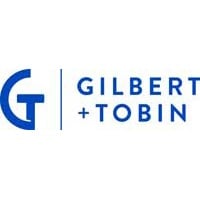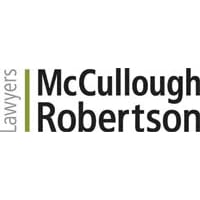
Australia 2019

General counsel | Bosch Oceana (Australia and New Zealand)





Anne Lock
General counsel | Bosch Oceana (Australia and New Zealand)
General counsel | Bosch Oceania
| BOSCH Australia
General counsel | Robert BOSCH (Australia) Pty Ltd
‘Each day brings an assortment of interesting tasks and concepts, with challenges and fun’, Anne Lock says, adding: ‘Sharing a tea room with brilliant inventors is awesome’. Heading legal support...
General counsel, Australia and New Zealand | Bosch
After graduating from Monash University, the majority of Anne Lock’s 22 years in legal practice have been in-house, firstly with energy giant ExxonMobil, then consulting in the Middle East before...
Bosch’s legal services team has been involved in significant research and development arrangements and sales projects, including digitising existing ecosystems with web-enabled devices via the Internet of Things including smart agriculture, connected e-bikes, keyless vehicles and autonomous driving.
Locally, in 2018 Bosch was named “Manufacturer of the Year”, both overall and in the “Large Business” category at the Victorian Manufacturing Hall of Fame Awards. Showing that focus pays off when your intention is innovation, in 2019 the same group won the award for the category of “Leader in Industry 4.0”. The results of these endeavours improve a vast array of human experiences including improved trailer safety for motorists, more efficient and safer manufacturing in production lines, and better agricultural practices for farmers, consumers and the environment.
Bosch’s lawyers delight in learning about technological developments and are eager to support the business to make ideas a reality. We’re a significant voice in advising on each aspect of the deal, including commercialisation, IP rights, contract negotiation, and the business relationship generally.
The ongoing development of lawyers and business colleagues is paramount to driving excellence in work product, fuelling creativity, and enriching staff to ensure engagement and stability within the department and the teams we advise. This can be developed at no cost by simply identifying an emerging subject matter or a new area of work, and exploring it from a “what if” perspective.
Often it can be more about intellectual curiosity and less about budgeted resources. One of my best outcomes was achieved by seconding an enthusiastic junior lawyer into a technical sales group. How to manage a transaction and negotiate a contract including intellectual property rights [existed] from one side, and was met with invaluable insights and business essentials in customer and supplier relationships on the other. There is no substitute for learning by doing. I see this in action every day as Bosch partners with several leading educational institutions to teach and learn from PhD and Masters candidates in engineering, computer science and business.
As a technology company which creates software and apps, our in-house IT skills are great. However when it comes to legal operations tools, Bosch has taken time to investigate and assess the best solutions for file management, productivity, virtual contracts, and law firm billing management.
Since 2018, a global team has been working on a solution and travelled in Europe and the US to assess what will work now and into the near future. I’m excited that in 2020, we can expect to enjoy the results of the exhaustive search for a custom solution for both matter management and spend management.
Legal tech will be vital to the success of all legal departments of the future. We need to waste less time doing repetitive tasks such as drafting and redrafting NDAs and term variations, so we have more time working with our business colleagues to understand the businesses’ needs, and focus on current and anticipated changes in the law. It’s about using machines as tools, to support our unique human capabilities.
Law is an art and a science, and no machine can read the room like we can! I feel the same way about driverless cars when it comes to embracing technology. Assisting my colleague in completing the very first “driverless car” licence in our state, for our precious home-grown and hand-made driverless Tesla, I was preoccupied by the need to eliminate the increasing road toll.
I’m proud to apply my legal skills to “Towards Zero”, and enjoy my chance to participate in the green fields space of autonomous vehicles. Watching videos of colleagues talking about inventing virtual robot valets to park Mercedes-Benz [automobiles] in German carparks is amazing, it is real, not just a concept.
Having mostly hired and/or worked with women, for me woman are the norm. I recently recruited a star candidate, who had been a star graduate, and the lawyer whose clients were eager to praise or poach them. The fact that this lawyer is a wife and mother, whose second career was law, is by the by. If you are the best in the field, you are the best. And you will be recruited and promoted accordingly, assuming the role and environment suit you. This is the tricky part.
In my legal studies class at Monash University (last century) in a packed tutorial room, there were only three male students. Since this, statistics show the sad reality of attrition, with numbers dropping off due to issues with role flexibility, remuneration and opportunities. For me, my working life in-house has been wonderful; I work full time in a job that I love, and outside of work I have primary school aged children and friends and interests. As does my husband, who is also an in-house lawyer.
When it comes to gender equality in corporations, it’s not the in-house legal profession that concerns me. What bothers me is sitting amongst STEM colleagues in meetings, and noticing there are no other women in the room. It is wonderful to see my employer actively encourage and create opportunities for girls to study core maths and science subjects, with a view to them being hired and promoted in a talent pool for engineering and technology.
The impacts of the internet, including the speed of communication, urgency with which communication is expected, and what this does to the quality of work, stress levels, and clients’ expectations. What speed has done is to create a lack of time and space for thinking and analysis, if you are not careful. I have observed that more senior practitioners can think a great deal faster than they type, which is a very good thing. When it comes to research, Google is wonderful when the content is reliable, however, back in 1995 the Supreme Court library almost certainly contained no “fake news”.